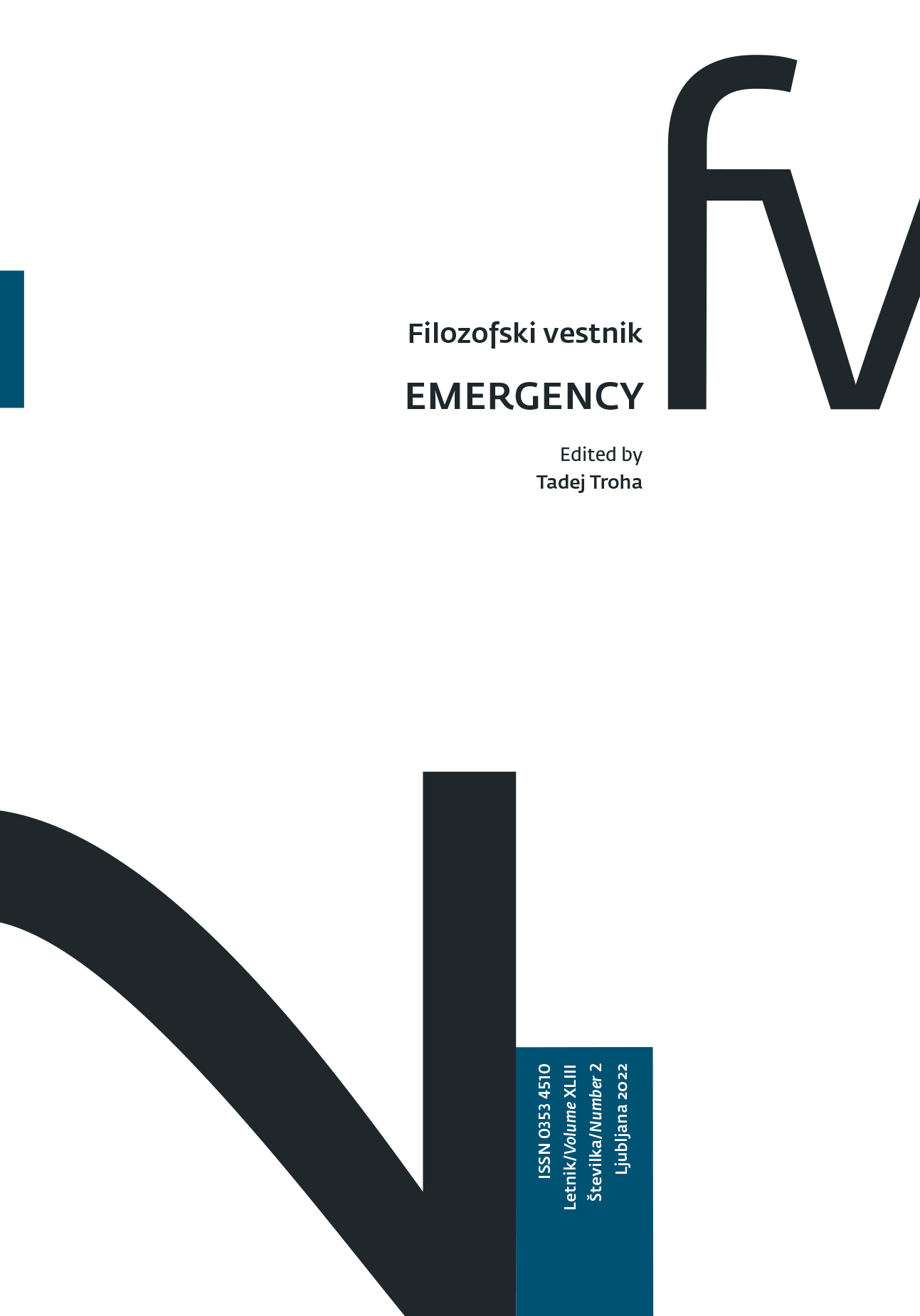Siren Song to the Last Man: Mary Shelley and the Loss of the World
DOI:
https://doi.org/10.3986/fv.43.2.07Keywords:
endling, prophecy, oblivion, unhistorical, irreversibleAbstract
The paper analyses the place of the End in Mary Shelley’s 1826 science fiction novel The Last Man, in which the image of a world devoid of humanity, as portrayed by the last man writing the last book, is drawn before the reader through a conceptual rethinking of notions such as the loss of the world, prophecy of the future, and oblivion of the past, as well as the return of the irretrievable through the siren song.
Downloads
References
Bergson, Henri, “Memory of the Present and False Recognition”, trans. M. McMahon, in Key Writings, K. Ansell-Pearson and J. Ó. Maoilearca (eds.), London, Bloomsbury, 2018, pp. 141–156.
Blanchot, Maurice, “The Apocalypse is Disappointing”, trans. E. Rottenberg, in Friendship, W. Hamacher and D. E. Wellbery (eds.), Stanford, Stanford University Press, 1997, pp. 101–108.
Craig, David, “The Last Word”, Nature, 381 (1996), p. 272. DOI: 10.1038/381272c0
Homer, Odyssey: Books 1-12, trans. A.T. Murray, Cambridge, Harvard University Press, 1995.
Horkheimer, Max, and Theodor W. Adorno, Dialectic of Enlightenment, trans. E. Jephcott, Stanford, Stanford University Press, 2002.
Milton, John, Paradise Lost, London, Penguin Books Ltd, 1996.
Nietzsche, Friedrich, On the Advantage and Disadvantage of History for Life, trans. P. Preuss, Indianapolis, Hackett Publishing Company, Inc., 1986.
Paley, Morton D., “Mary Shelley’s The Last Man: Apocalypse Without Millennium”, Keats-Shelley Review, 4 (1/1989), pp. 1–25. DOI: 10.1179/ksr.1989.4.1.1
Rousseau, Jean-Jacques, The First and Second Discourses and Essay on the Origin of Languages, trans. V. Gourevitch, New York, Harper & Row Publishers, 1990.
Shelley, Mary, The Last Man, New York, Oxford University Press, Inc., 2008.
Shelley W., Mary, The Letters of Mary Wollstonecraft Shelley, Volume I, B. T. Bennett (ed.), Baltimore, Johns Hopkins University Press, 1980.
The Literary Gazette and the Journal of the Belles Lettres, Arts, Sciences, 474, 18 February 1826, pp. 102–103. Available at https://archive.org/details/sim_literary-gazette_1826-02-18_474/mode/2up?q=last+man&view=theater.
The Literary Magnet, Or, Monthly Journal of the Belles Lettres, 1 (1826), p. 56. Available at https://archive.org/details/sim_literary-magnet-or-monthly-journal-of-the-belleslettres_1826-01_1/page/n55/mode/2up.
The Monthly Review, 1 (March 1826), pp. 333–335. Available at https://archive.org/details/sim_the-monthly-review_1826-03_1/page/334/mode/2up.
Troha, Tadej, Intervencije v nepovratno [Interventions in the Irreversible], Ljubljana, Analecta, 2015.
Troha, Tadej, “No Louder: Beckett and the Dynamics of Monotony”, in E. Ruda (ed.), Beckett and Dialectics, London, Bloombsbury, 2021, pp. 173–193.
Virgil, The Aeneid, trans. J. Dryden, London, Penguin Books Ltd, 1997.
Virgil, Aeneid, trans. R. Fitzgerald, New York, Random House, 1989.
Virno, Paolo, Déjà Vu and the End of History, London and New York, Verso, 2015.
Webster, Robert M., and Bruce Erickson, “The Last Word?”, Nature, 380 (1996), p. 386. DOI: 10.1038/380386c0
Zupančič, Alenka, Konec, Ljubljana, Društvo za teoretsko psihoanalizo, 2019.
Zupančič, Alenka, “The Apocalypse is (Still) Disappointing”, S: Journal of the Circle for Lacanian Ideology Critique, 10–11 (2017–2018), pp. 16–30.
Downloads
Published
How to Cite
Issue
Section
License
Copyright (c) 2022 Authors

This work is licensed under a Creative Commons Attribution-NonCommercial-NoDerivatives 4.0 International License.
Authors guarantee that the work is their own original creation and does not infringe any statutory or common-law copyright or any proprietary right of any third party. In case of claims by third parties, authors commit their self to defend the interests of the publisher, and shall cover any potential costs.
More in: Submission chapter





